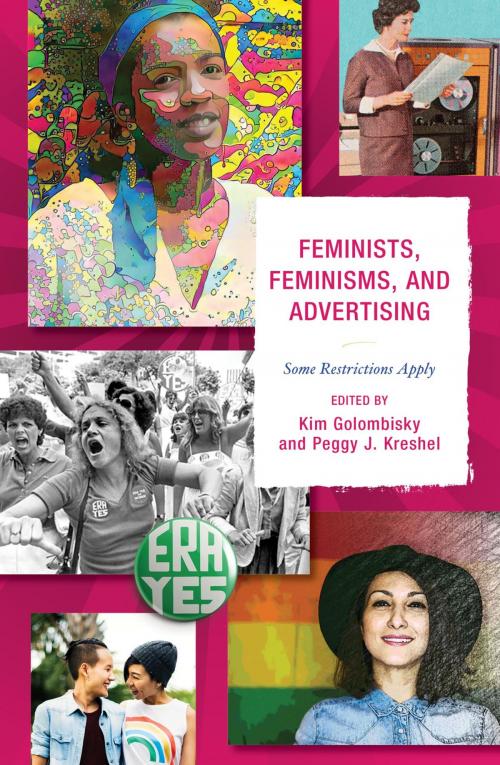Feminists, Feminisms, and Advertising
Some Restrictions Apply
Nonfiction, Reference & Language, Language Arts, Communication, Business & Finance, Marketing & Sales, Advertising & Promotion, Social & Cultural Studies, Social Science, Gender Studies| Author: | Jillian M. Báez, Jacqueline Lambiase, Ann Marie Nicolosi, Catherine A. Coleman, Carolyn Bronstein, Wanhsiu Sunny Tsai, Kasey Windels, Dara Persis Murray, Xiaoqi Han, Joanna L. Jenkins, Jeanie E. Wills, Jean M. Grow, Karen L. Mallia, Kimberly Wilmot Voss, University of Central Florida, Juliet Dee, Leandra Hinojosa Hernández | ISBN: | 9781498528276 |
| Publisher: | Lexington Books | Publication: | October 16, 2017 |
| Imprint: | Lexington Books | Language: | English |
| Author: | Jillian M. Báez, Jacqueline Lambiase, Ann Marie Nicolosi, Catherine A. Coleman, Carolyn Bronstein, Wanhsiu Sunny Tsai, Kasey Windels, Dara Persis Murray, Xiaoqi Han, Joanna L. Jenkins, Jeanie E. Wills, Jean M. Grow, Karen L. Mallia, Kimberly Wilmot Voss, University of Central Florida, Juliet Dee, Leandra Hinojosa Hernández |
| ISBN: | 9781498528276 |
| Publisher: | Lexington Books |
| Publication: | October 16, 2017 |
| Imprint: | Lexington Books |
| Language: | English |
Feminists, Feminisms, and Advertising provides feminist analyses of the historical relationships between the advertising industry and the women’s movement in the United States. Contributors consider the ways that advertisers encode race, ethnicity, gender, and heteronormativity into advertising practices and messages exported around the world. They further explore the ways that intersectional audiences such as women of color, Latinas, and lesbian and gay audiences decode, reinterpret, resist, and subvert advertising. With this book, the editors and contributors address the present lack of feminist scholarship, research, knowledge, or curriculum in advertising, and begin a more honest dialogue about diversity and intersectional gender in the advertising academy as well as the advertising industry.
Feminists, Feminisms, and Advertising provides feminist analyses of the historical relationships between the advertising industry and the women’s movement in the United States. Contributors consider the ways that advertisers encode race, ethnicity, gender, and heteronormativity into advertising practices and messages exported around the world. They further explore the ways that intersectional audiences such as women of color, Latinas, and lesbian and gay audiences decode, reinterpret, resist, and subvert advertising. With this book, the editors and contributors address the present lack of feminist scholarship, research, knowledge, or curriculum in advertising, and begin a more honest dialogue about diversity and intersectional gender in the advertising academy as well as the advertising industry.















